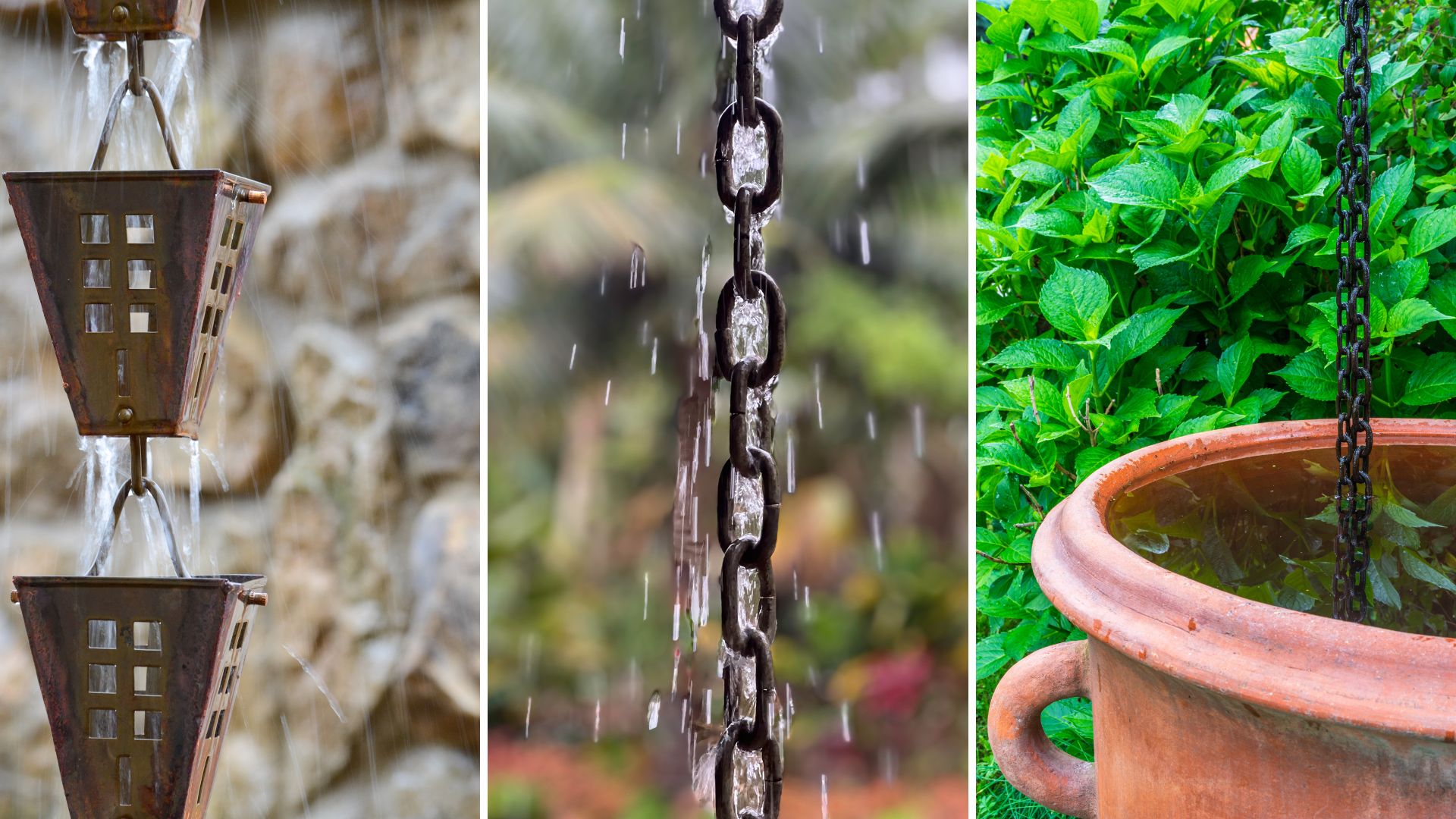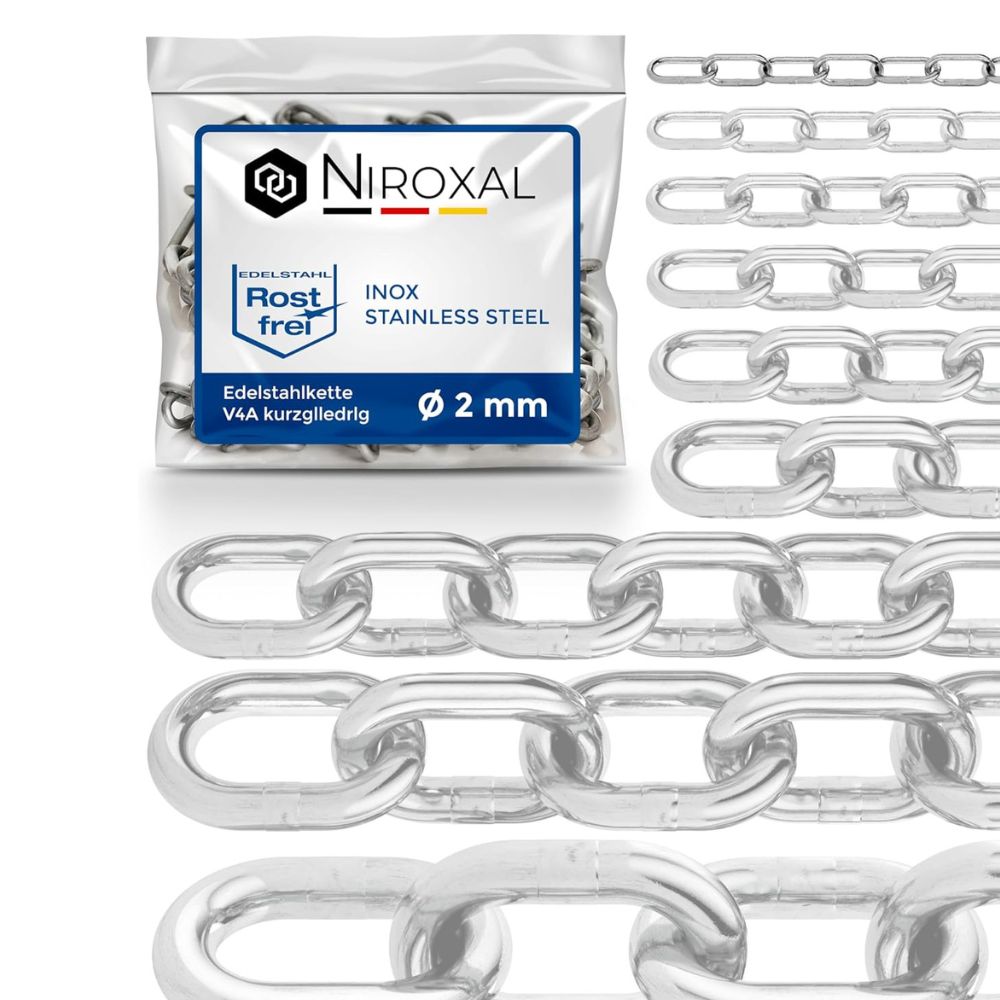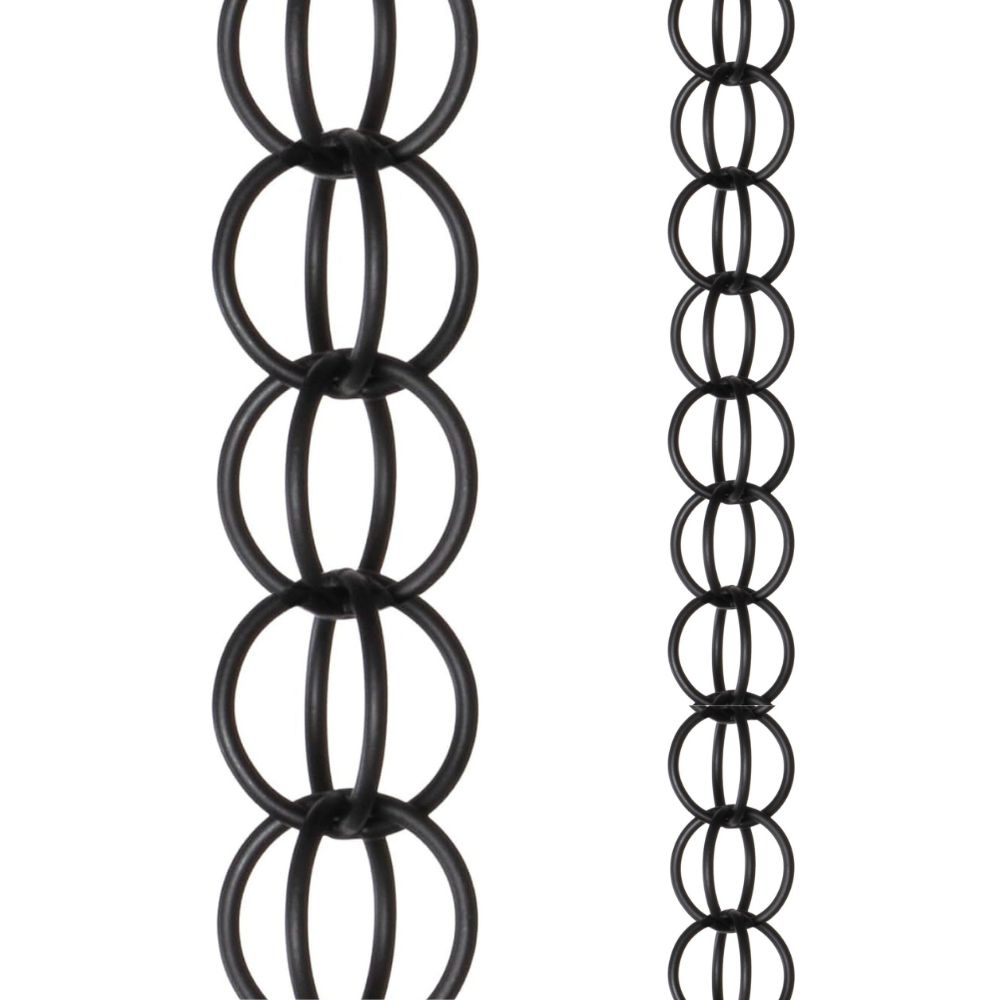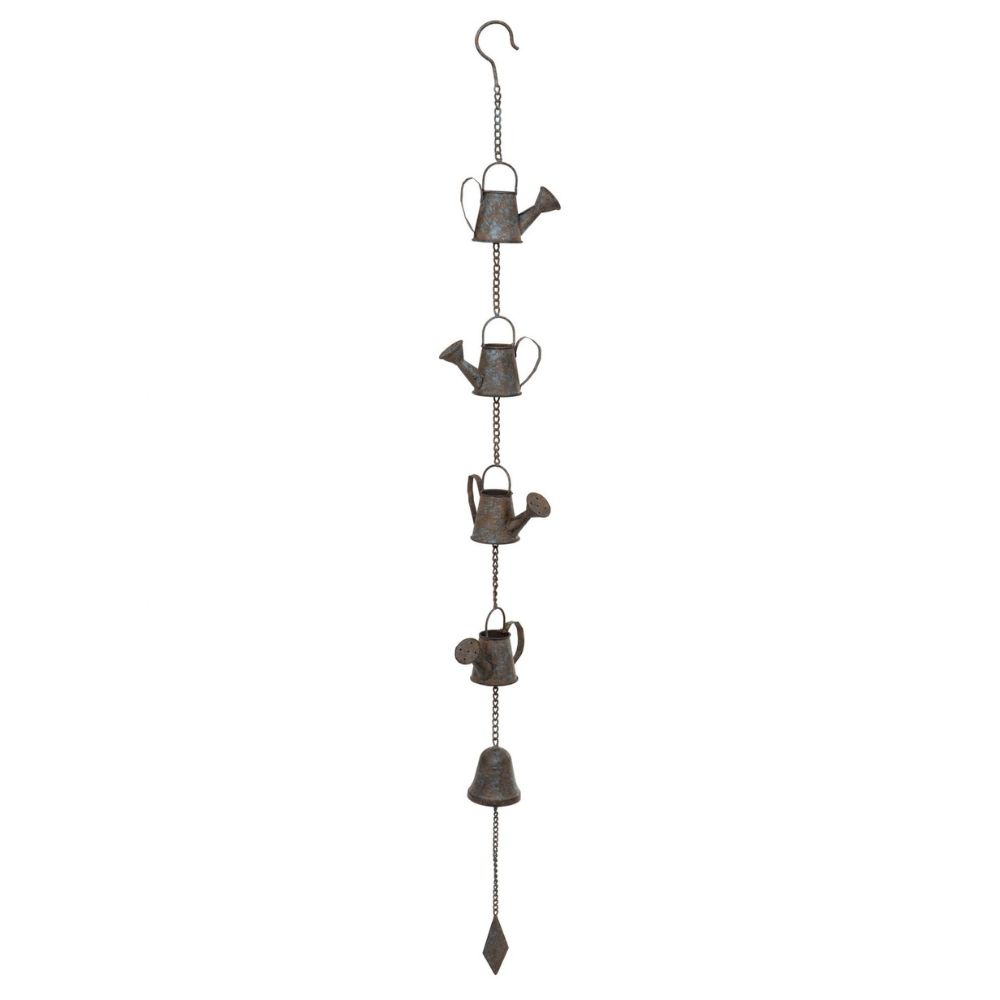What is a rain chain? Experts explain the benefits behind the on-trend garden tool
Trying to make your garden more eco-friendly and sustainable? A rain chain might just be the handy tool you've been looking for


When it comes to sustainable gardening, finding unique ways to make the most out of nature's resources is the best way to get started. This is why rain chains continue to be extremely popular with eco-friendly gardeners.
Although we've had many favourite garden trends, sustainable ones such as rainscaping will always remain current and important no matter what the latest outdoor aesthetic is. Rain chains are a great tool for not only rainscaping but also for rainwater harvesting which has multiple benefits.
But what exactly are rain chains and how can you make them work for your garden? We spoke to garden experts to get to the bottom of this sustainable garden addition.
What is a rain chain?
As one of the best sustainable garden ideas, rain chains are a super easy non-fuss way of incorporating more eco-friendly functions into your garden with minimal upkeep or maintenance.
"A rain chain is a metal chain that is attached to the corner of your gutter in replace of a downspout. When the water runs off the gutter it is directed down the rain chain and channelled into certain areas of your garden," explains Tom Clifford, landscaper and director of Gardenstone.
What function your rain chain does all depends on where you place it in your garden. Tom says that rain chains can channel water directly into water butts, buckets, water features, a bed of moisture-loving plants and so on. Rain chains also come in various designs, whether that's a traditional chain or small buckets linked together, some can be rather ornate which will help transform your garden on a budget.
Rain chains are a brilliant way of reducing your water usage and can be placed anywhere in your garden that has a gutter, whether that's your shed or garage.
Sign up to our free daily email for the latest royal and entertainment news, interesting opinion, expert advice on styling and beauty trends, and no-nonsense guides to the health and wellness questions you want answered.
Three on-trend rain chains

RRP: £21.51 | Want the rustic traditional look? This classic stainless steel chain is sold by the metre on Amazon and will do the trick after a simple set-up process.

RRP: £82.40 | With a thick aluminium ring design, this rain chain includes a crossbar for installation and is sealed in a black powder coating.

RRP: £26.50 | This stunning ornate rain chain will bring a little whimsy to any garden all whilst collecting that precious rainwater.
Can you make your own rain chain?
Although they're not extremely expensive, finding ways to DIY around your garden can make a huge difference when it comes to costs and waste. So just like how you can use old towels in your garden for various purposes, you can create your very own rain chain.
Speaking to the lead gardener at Allen's Gardeners, Jane Dobbs, she says, "It's easy to make a rain chain with some simple materials - sturdy wire or chain, and a few decorative pieces like buckets, cups, bells, beads, and pliers. You'll need hooks or brackets to install it. You can finish it with paint to match the colours in your outdoor area if you want."
Once you've selected the design and desired length, use a plier to cut the chain to the exact length making sure it's long enough to reach from the gutter down spout to where you want the water to go. Then use pliers to attach any decorative elements to the chain, after that water should flow smoothly from your gutter downspouts. It may need adjusting but just keep an eye on it the next time it rains.
What type of rain chain is the best?
Now you know the benefits of having a rain chain in your garden, you might be wondering what the best type is and if you should make your own or invest in a special ornate one to elevate your rewilding trend-inspired space.
"It's hard to beat copper rain chains when it comes to durability. They also patina over time, adding rustic charm to your garden. They're perfect for areas with moderate to heavy rainfall," says Jane.
If rustic isn't quite what you're going for then Jane also recommends stainless steel rain changes as they are extremely durable and resistant to corrosion, this also means they're perfect for coastal or high-moisture areas. Should you want to go even further with the sustainability of your garden then you can purchase bamboo rain chains which are lightweight and biodegradable.

Whilst it's difficult to find issues with a sustainable garden tool that provides fresh rainwater, Jane points out that there is a disadvantage to using a rainchain.
"A disadvantage of rain chains is that they don't have as much water-handling capacity as traditional downspouts," explains Jane. "It might struggle to handle the volume and direct water during heavy rains or downpours."
So it might not be the best idea to rely completely on your rain chain for all your watering needs.

Emily joined woman&home as a staff writer after finishing her MA in Magazine Journalism from City University in 2023. After writing various health and news content, she now specialises in lifestyle, covering unique cleaning hacks, gardening how-tos, and everything to help your houseplants thrive.